Important Insights
In today’s world, various scams are meticulously designed to exploit your bank account, and among the most common are check overpayment schemes, fraudulent charity solicitations, and deceptive online lending practices. It’s particularly alarming that younger individuals often fall victim to employment-related scams. A vital piece of advice for job seekers is to remember that legitimate employers will never require you to pay for training or equipment upfront as a condition of employment.
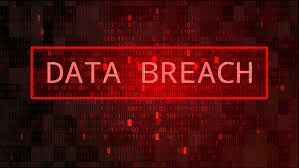
As a general guideline, refrain from making payments for services or products that you did not initiate yourself. The prevalence of scams is staggering; in fact, over 67,000 individuals reported being scammed to the Better Business Bureau in 2023 alone. The BBB Scam Tracker Risk Report indicates that the average financial loss reported was around $100, with many scams specifically targeting unsuspecting bank customers.
While federal regulations do offer some protection against credit card fraud, the same cannot be said for bank-related scams. For instance, if you unknowingly deposit a counterfeit check and then transfer part of that amount to a scammer, you might find yourself held accountable for the transaction. As Liz Cackowski, a certified financial crimes investigator and senior fraud investigator at Republic Bank, points out, “You are responsible for any deposits made to your account.”
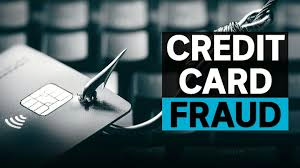
The good news is that there are ways to safeguard your finances. By educating yourself on how to spot six prevalent types of bank scams, you can take proactive steps to protect your hard-earned money and maintain control over your banking activities.
Beware of Check Overpayment Scams
One of the prevalent forms of deception that has emerged in recent years is check overpayment fraud, which predominantly preys on individuals selling items through online auctions and classified ad platforms. In these schemes, a scammer will present a seller with a counterfeit check that exceeds the agreed-upon price of the item being sold. After the seller deposits this fraudulent check, the con artist will typically request that the seller wire back the excess amount. Unfortunately, the seller ends up facing not only the inconvenience of a bounced check but also the financial loss equivalent to the sum they sent back to the scammer.
To protect yourself from falling victim to this type of fraud, it is crucial to conduct thorough checks on the buyer’s identity. This involves confirming their name, address, and phone number through independent means. Be particularly cautious if you receive a check from an unfamiliar source; as Cackowski advises, such a situation should raise immediate suspicions. For instance, if you are selling a product to someone located in Ohio but receive a check from a dental office based in Washington, D.C., likely, the payment is likely not genuine. No matter how persuasive or urgent the buyer seems, you should refrain from cashing any check and then sending money based on it. If you have any doubts about a payment you’ve received, do not hesitate to consult your bank for guidance.
Credit Card and Bank Account Fraud
Another common scam involves fraudulent communications from individuals posing as representatives of your credit card company or bank. These scammers often reach out via email or phone call, claiming there is an issue with your account. They may instruct you to call back to address this problem or provide a link for you to update your account information. In some cases, they might go so far as to assert that they are conducting an investigation into potential fraud on your account, asking you to share sensitive information such as your Social Security number or account details for further inquiry. These tactics are merely ploys designed to extract confidential information from unsuspecting victims.
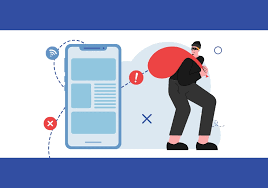
To safeguard yourself against these scams, avoid clicking on any links or attachments provided in unsolicited emails. Even if a voicemail includes a callback number, it’s best to disregard it. Michael Foguth, president and founder of Foguth Financial Group in Brighton, Michigan, emphasizes the importance of using only known contact numbers: “Don’t call the number they gave you. Call the number you have.” This approach ensures that you reach legitimate representatives rather than inadvertently connecting with scammers.
Charity Scams
In a world where kindness often leads the way, it’s disheartening to acknowledge that not every individual soliciting charitable donations has noble intentions. Caleb Barnum, an expert in fraud prevention from Integrated Research, highlights a troubling reality: “Fraudsters are out there, and they do prey on people’s good intentions.” Imagine receiving a phone call that claims to seek contributions for your local police department or perhaps for families of military personnel. Under the guise of these noble causes, unscrupulous individuals cunningly extract sensitive information regarding your bank account or debit card, effectively granting them unrestricted access to your finances.
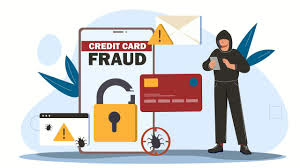
To safeguard your altruistic impulses from being exploited, it is paramount to ensure that your contributions reach legitimate organizations. The most reliable approach is to support charities that you are already familiar with and trust. Moreover, please exercise caution when divulging personal details to anyone who contacts you via phone or email; it’s essential to protect your information vigilantly.
Online Loan Frauds
The realm of online lending scams preys primarily on those facing difficulties in securing traditional bank loans. Often, victims receive unsolicited emails from purported lenders or stumble upon websites that promise effortless access to funds. “Because the victim thinks they are applying for a loan, they don’t think twice about providing sensitive information,” warns Cackowski. In these scenarios, scammers may obtain bank account details under the pretence of processing a loan. Victims may find themselves sending payments or even setting up direct deposits, believing they are engaging in legitimate transactions. Furthermore, they may be coerced into making an immediate good-faith payment. However, as with the check overpayment scam, the “loan” they think they’re receiving is nothing but a mirage.
To avoid falling prey to such deceptions, always take the time to research any lending institution by checking reviews and their ratings through the Better Business Bureau. If you cannot find credible feedback or ratings, it’s a strong indication that the business may not be genuine.
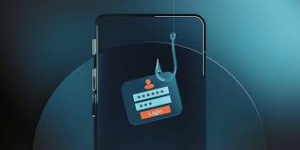
Job Opportunity Scams
According to the Better Business Bureau, younger adults are particularly vulnerable to employment scams, often falling victim more frequently than older age groups. In many of these schemes, scammers present enticing job offers but then proceed to request personal information or even money under the guise of “training” or purchasing necessary “equipment.”
To protect yourself from these fraudulent tactics, it is crucial never to send money to a prospective employer. Legitimate job opportunities should not require you to pay for background checks, equipment, or any other prerequisites in exchange for a promise of employment. Always remain vigilant and sceptical when approached by potential employers asking for money or sensitive personal information. Remember, your job search should empower you, not expose you to exploitation.
Award Scams
Award scams have become increasingly prevalent in today’s digital age. In these deceitful schemes, unsuspecting individuals receive notifications claiming they’ve won a foreign lottery. The message often comes with an enticing promise of a substantial cash prize, creating a sense of excitement and anticipation.
However, the reality is far from what it seems. Scammers will send you an extensive check, instructing you to deposit it into your checking account. Once the check clears, they will pressure you to wire a portion of the funds to cover supposed government taxes and administrative fees. This is where the trap lies; after you send the money, the original check will bounce, leaving you responsible for the entire amount withdrawn.

To protect yourself from falling victim to this scam, remember one crucial rule: if you don’t enter the contest, you can’t win it. Additionally, participating in a foreign lottery through mail or phone is against federal law in the United States. It’s essential to know that legitimate lottery winners in the U.S. are required to pay taxes on their winnings, either as a lump sum in the year they receive the money or through annual payments in instalments. Always be cautious and sceptical of unexpected winnings that come with strings attached.
Safeguarding Yourself Against Banking Fraud
In today’s world, where digital transactions reign supreme, it’s essential to remain vigilant against the various banking scams that lurk around every corner. As you navigate your financial journey, keep in mind the prevalent scams that could jeopardize your hard-earned money and arm yourself with strategies to sidestep these traps. One fundamental piece of advice that experts like Foguth emphasize is this: “Never make a payment over the phone for something you didn’t initiate.” It’s a simple yet crucial rule—avoid it altogether.
Scammers are nothing if not inventive, constantly devising new tactics to infiltrate people’s bank accounts and exploit their trust. They tend to target individuals who may be considered easy prey. Barnum points out that these criminals often seek out those who are actively job hunting, engaging in online dating, selling goods, or even those with altruistic intentions looking to assist others in need. The vulnerability of such groups makes them prime targets for deceitful schemes.
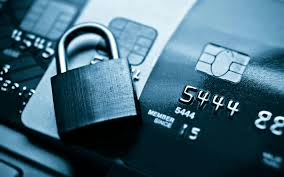
Particularly concerning is the focus on seniors, a demographic that often falls victim to these scams. As Barnum observes, this generation is typically more trusting, which can inadvertently put them at greater risk. Their willingness to believe in the goodness of others can make them susceptible to the cunning tactics employed by fraudsters.
Now, when it comes to recovering funds lost to scams, the policies of banks can vary significantly. Your chances of reimbursement largely depend on the nature of the scam and the specific practices of your bank. If you notice any unauthorized transactions or if you find money missing from your account, you must reach out to your bank without delay. The Consumer Financial Protection Bureau advises that you should notify your bank within 60 days of receiving your statement that highlights these suspicious activities. Failing to do so might leave you liable for the full amount of any transactions that occurred after this period and before you informed your bank.
Once you’ve alerted your bank about the issue, they have a timeline they must adhere to. They are obligated to investigate the matter within ten business days. Following this investigation, the bank must communicate its findings to you within three business days. If they cannot complete their investigation in that timeframe, they may provide you with a temporary credit while they continue digging into the matter. Ultimately, the bank must resolve the issue within 45 days; however, in some cases, this could extend up to 90 days, depending on the complexity of the situation.
It’s also worth noting that if you encounter fraudulent checks, be cautious—deposits made through these checks can later be reversed, as outlined by the Office of the Comptroller of the Currency. Should this happen, your best course of action for reimbursement would be to pursue the individual who issued the check.

In summary, staying informed and proactive is your best defence against banking scams. By maintaining awareness of common fraud tactics and understanding how to respond should you fall victim, you can better protect your financial well-being and navigate the banking landscape with confidence.
Maxthon
In the contemporary world of digital interaction, ensuring your safety while exploring the extensive realms of the internet has become increasingly paramount. The necessity of choosing a web browser that places a high value on security and privacy is more important now than ever. Among the various options available, the Maxthon Browser stands out as an exceptional choice that caters to these essential requirements—all at no cost to the user. This innovative browser is equipped with an impressive array of built-in functionalities, including an Adblocker and tools designed to thwart tracking, both of which play a significant role in bolstering your online privacy.

Maxthon is deeply dedicated to curating a browsing experience that not only prioritizes safety but also honours the privacy of its users. With a keen emphasis on safeguarding personal information and online activities from a myriad of threats, Maxthon employs a variety of practical strategies aimed at protecting user data. By leveraging advanced encryption techniques, the browser ensures that your sensitive information remains confidential and secure throughout your internet browsing sessions.
When it comes to advocating for online privacy, Maxthon truly shines. The browser is thoughtfully designed with a host of features specifically tailored to enhance privacy, such as ad blockers, anti-tracking capabilities, and an incognito mode. These tools work in unison to block disruptive advertisements and prevent tracking scripts from surveilling your online actions. Consequently, users are afforded the opportunity to navigate the web within a more secure environment. The incognito mode further fortifies this sense of security by allowing individuals to browse without leaving behind any digital footprints or traces on their devices.
Maxthon’s steadfast dedication to user privacy and security is evident in its regular updates and continuous improvements. These enhancements are crucial for identifying and addressing potential vulnerabilities, ensuring that Maxthon remains one step ahead of emerging threats in the ever-evolving digital landscape. This commitment to providing a reliable private browsing experience makes Maxthon a commendable choice for anyone seeking enhanced online privacy.
In summary, the Maxthon Browser prioritizes user safety and embodies a profound respect for individual privacy, making it invaluable for navigating today’s complex online environment.
